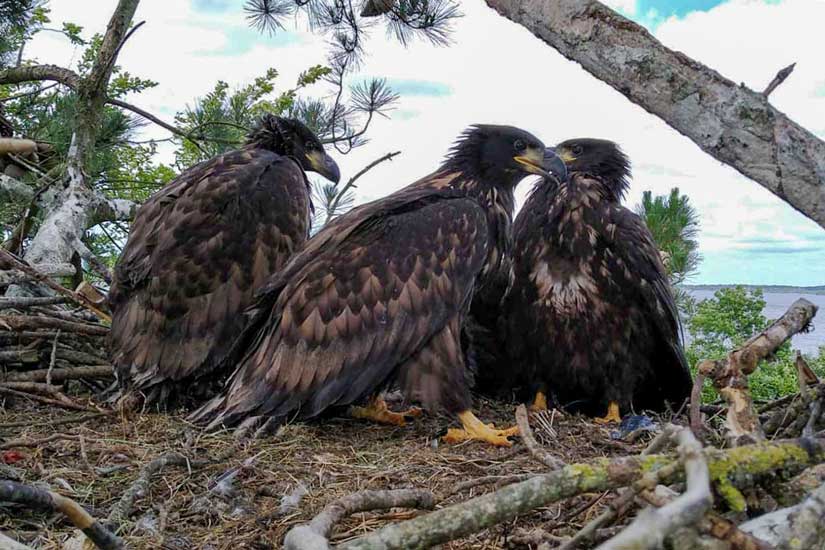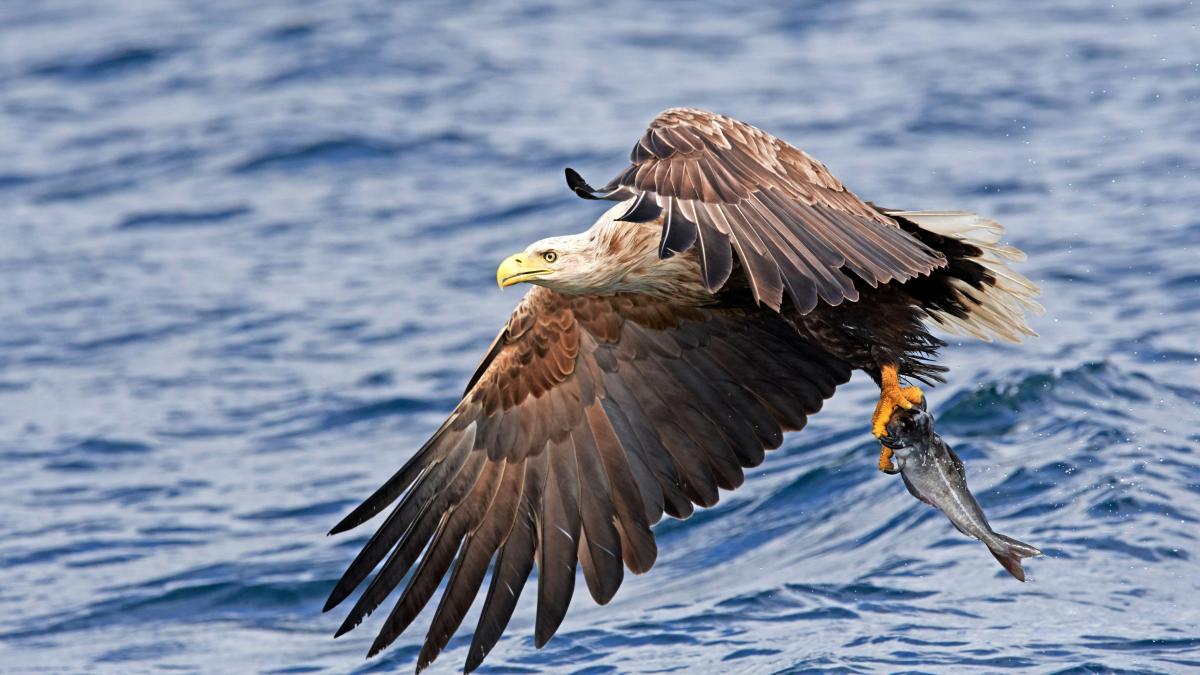The first sea eagle chick to hatch in Spain in nearly two centuries has taken flight into a storm of controversy.
Born in the central Castile and León region to a reintroduced pair, the bird is hailed as a triumph for conservation yet condemned by critics who fear damage to fisheries, livestock and rival species.
The chick, a male, was born in May. The sea eagle, Europe’s largest eagle, had disappeared from Spain because of hunting between the 18th and 19th centuries.
• First white-tailed eagle chick fledges in Dorset for 240 years
“The recovery of a species is a joy; it’s a milestone for Spanish biodiversity,” said Ernesto Álvarez, head of Grupo de Rehabilitación de la Fauna Autóctona y su Hábitat, a non-profit organisation that is leading the project.
Reintroduction began in 2021, with 25 individuals brought from Norway to Asturias and Cantabria. Of those, 17 remain. Six breeding pairs have formed. Between March and May this year one pair built a nest in a tree, incubated an egg, and then hatched a chick.
The project leaders emphasise that, though the number of birds is small relative to Spanish territory, the fact that birds are establishing territories, forming pairs, and now reproducing indicates progress.
The hatchling has prompted debate over potential ecological, economic and social consequences. Nicolás López-Jiménez, from SEO/BirdLife, said: “Its introduction has created alarm in the local populations over possible damage to fishing and livestock. We consider it an introduction project, not a reintroduction.
Germán Orizaola, a zoologist at the University of Oviedo, said: “A species is being released that has not had a place in the ecosystem for thousands of years. It may compete with the golden eagle or the bearded vulture for food, and push them out of their nesting areas. It has been done without scientific basis.”

Ireland’s first sea eagle triplets were born to Norwegian parents
DAMIEN CLARKE
In 2023 the regional governments of Asturias and Cantabria withdrew their support from the project, halting further releases although existing individuals remain free and monitored. The project was funded initially by Spain’s Ministry for Ecological Transition, with an investment of about €360,000. The ministry, while acknowledging concerns, has indicated that technical support is being provided. The nest’s location has been kept secret.
Sea eagles are established in Scandinavia, and have been reintroduced in Scotland and Ireland, with a mixed reception over conflict with fisheries and farming. Those precedents are cited by both sides in Spain.

